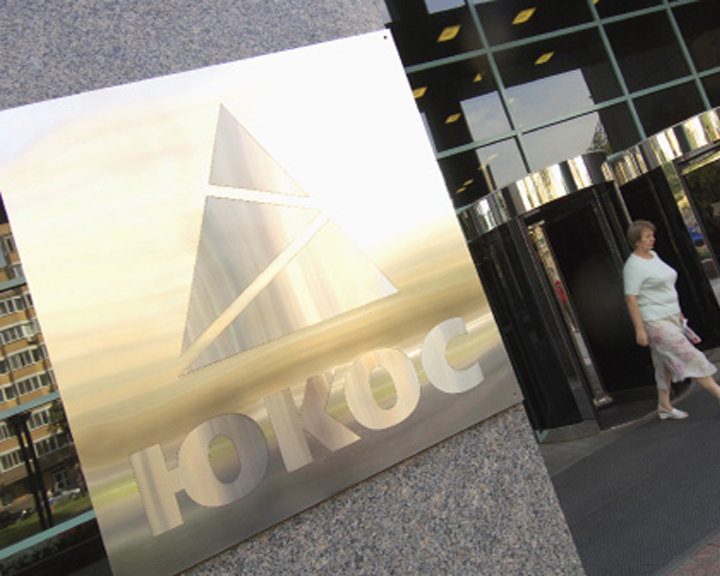MOSCOW, September 13 (RAPSI) – The European Court of Human Rights will not award the now defunct Yukos oil company $98 billion in damages, Russian lawyers interviewed by the Russian Legal Information Agency (RAPSI) said on Tuesday. The court’s task is to ensure that signatories abide by the European Convention on Human Rights – and not to impose large fines on countries, they stressed.
The company lodged a complaint against the Russian government in Strasbourg in 2004, seeking a record $98 billion in compensation for what its lawyers argued was an illegal expropriation.
The Strasbourg Court will announce its ruling on September 20.
The lawyers who have worked in Strasbourg told RAPSI that Russia will have to abide by the court ruling regardless of how much Yukos is awarded.
“Russia will have to pay compensation, whether it is $1, $1 million, or $98 billion,” lawyer Anna Stavitskaya said.
At the same time, the lawyers do not believe the European Court would ever try to collect such an exorbitant amount from any country.
“If the court decides to award damages to Yukos, it may reduce the compensation to tens of thousands of dollars,” lawyer Dmitry Agranovsky said. “In some cases, the court does not award damages at all, and simply confirms the fact that the European convention has been violated.”
Money isn’t everything
The Strasbourg Court’s mission is not to fine countries, but to ensure that the violations it identifies are never repeated, lawyer Igor Trunov said.
“This is an exorbitant amount,” he stressed. “Nothing of the kind will be awarded. No one has ever heard of such enormous damages and hopefully no one ever will. This institution does not work this way. It is there to create a precedent, to prevent further offenses, and not to impose ridiculous fines. If Yukos wins the case, the ruling will say which articles of the European convention Russia violated. Some compensation may be awarded, but surely nothing as large as the YUKOS claim.”
Agranovsky noted that the Strasbourg Court rarely awards the exact amount of the damages claimed by a plaintiff, even when only tens of thousands of dollars or euro are sought.
“They certainly would not dream of imposing $98 billion compensation on Russia,” he said. “Even if Yukos wins, the awarded damages would be much less. Sometimes, the court just confirms that a violation has occurred.”
According to Agranovsky, since the court’s primary task is to ensure countries’ compliance with the convention, its primary aim will be to recognize – or not recognize – Russia’s actions regarding Yukos as violating the document.
“This is the court’s mission and financial compensation is not,” he said.
Meanwhile, defense lawyer Vladimir Zherebenkov shared his opinion.
“The court will mostly deliberate on the presence of violations, and not about the amount of compensation,” he said. “If the European Court rules in Yukos’ favor, Russian courts will have to review the tax claims against the company.”
Right to appeal
The European Court’s decision is not final. If the contending party is not satisfied, it can contest the ruling in the Grand Chamber, the appeals body for the Strasbourg Court, Yury Schmidt, a lawyer for Yukos former CEO, told RAPSI.
An appeal must be filed within three months of the ruling, he said.
Schmidt declined to comment on the possible ruling or its legal repercussions, adding that he does not represent any of the parties in the case and is thus not entitled to make any statements.
The public hearing of the Yukos case in Strasbourg took place in March 2010. A Yukos representative told the court that the Russian authorities had arbitrarily and unlawfully charged the company 19.6 billion euro in additional taxes for 2000-2003, including fines and penalties, and relentlessly enforced a decision that was essentially a disguised expropriation.
The company believes that the Russian government violated as many as six different articles of the European Convention on Human Rights, namely articles 1, 6, 7, 13, 14 and 18, as well as Article 1 of Protocol 1.
The damages claimed include the estimates of property, which is allegedly, “known to the Russian government through Russian court proceedings,” the base value of Yukos’ stake in Yuganskneftegaz (19.6 million euro), and other assets and compensation for lost profits as a result of the expropriation.
Russia insists that Yukos used elaborate schemes to evade taxes in 2000-2003, as it was entitled to privileged taxation in several Russian regions. It also claims that the Yuganskneftegaz auction was conducted in strict compliance with the law.



